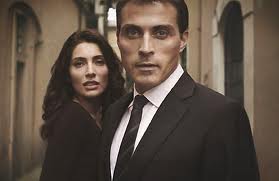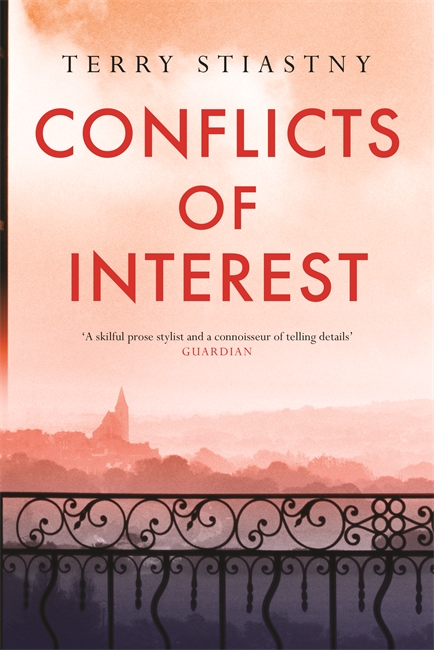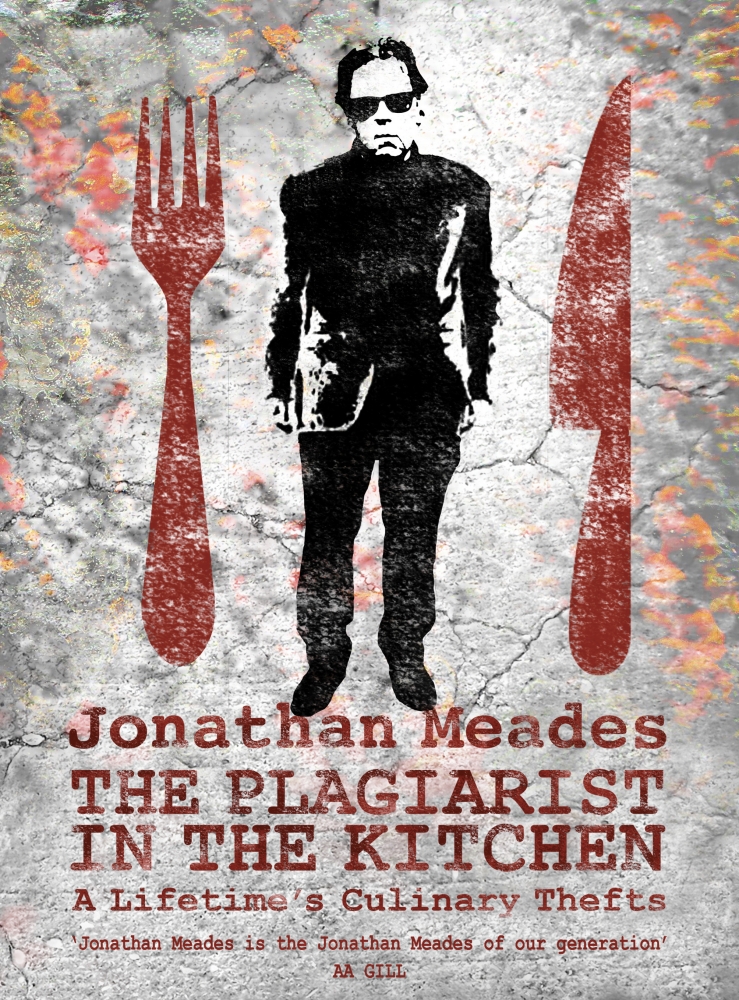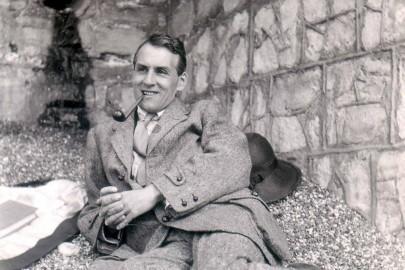Last Sunday night’s Aurelio Zen mystery (three episodes on BBC1, Sunday 8pm), Vendetta, was remarkably coherent for the genre. The plots of TV thrillers rarely stack up, even in the ninety-minute-plus format spacious enough to accommodate a comprehensive effort. Even the first and most successful of this particular sub-genre, Morse – despite its excellent acting, setting, dialogue and production values – rarely had a plot that wasn’t at least a little wobbly.
Wallander, the most recent of these efforts prior to Sunday’s Zen, shared Morse‘s qualities but also its often defective plotting. Otherwise Wallander and Zen are very much the same sort of thing: a BBC co-production with European TV companies, destined to play periodically for a decade or two in the policier slot in schedules across Europe and presumably elsewhere. Both use leading actors who can really act, a supporting cast populated by actors of similar quality, and a well-worked script which is beautifully shot on what looks like a rather lavish budget.
Where Wallander seemed to be filtered through colours evocative of its Skåne location (the blues found in its big summer sky and on the edges of a long, LED-lit winter; the yellows of its cornfields, dunes and wooden interiors, both colours strangely echoed in the Swedish flag), Zen uses a palette provided by Caffé Nero (from latte creams to espresso browns). I’m not an aficionado but Zen also surely contains a few nods in the direction of Italian neorealismo cinema of the ’50s and ’60s (not least the retro credits – a treat for typeface connoisseurs).
But similarities aside, Zen achieves, ahem, a higher form of enlightenment. Sunday night’s plot certainly lived up to Buchan’s description of this sort of genre work: ‘where the incidents defy the probabilities, and march just inside the borders of the possible’. The difference from most of its counterparts was that, despite its defiance of probabilities, its plot was internally coherent: it made perfect and effortless sense on its own terms. Personally, I find that absent this there can be no suspension of disbelief – everything unravels if the plot doesn’t fit together. My enjoyment of many a Morse and Wallander has been spoiled because I’ve been given an unwelcome reminder that I’m watching a piece of mere TV artifice rather than a world I can get imaginatively lost in.
Sunday’s plot was not just coherent, it was subtle and satisfying: it felt unforced despite the dénouements of plot and sub-plot dovetailing very nicely at the end. But TV producers can take only so much of the credit for this (or blame when it doesn’t work out). Michael Dibdin, the author of the original Zen thrillers, was a master plotter.
He was also a genuinely good writer, his style putting him in a different league from most authors of thrillers. This may explain why his name isn’t as well-known as some lesser writers: originality of expression and plots that make you think don’t always recommend themselves to consumers of genre fiction. As CS Lewis observed (recently quoted here):
The hackneyed cliché for every appearance or emotion…is for [the unliterary reader, i.e. the vast majority] the best because it is immediately recognizable. ‘My blood ran cold’ is a hieroglyph of fear. Any attempt, such as a great writer might make, to render this fear concrete in its full particularity, is doubly a chokepear to the unliterary reader. For it offers him what he doesn’t want, and offers it only on the condition of his giving to the words a kind and degree of attention which he does not intend to give. It is like trying to sell him something he has no use for at a price he does not wish to pay.
Without wishing to claim literary greatness for Dibdin he does tend to give his ‘words a kind and degree of attention’. Admittedly, the Zen series of novels had something of a dip in quality about half-way through, but, rather like Rankin’s, these are thrillers that achieve a quality that can transcend the genre.
What’s more, in their sinister portrait of modern Italy they have a revelatory quality that bears comparison with non-fiction exposés such as Tobias Jones’s Dark Heart of Italy. In fact, one potential failing of the TV series may be – at least on the evidence of the first episode – its portrayal of Zen as rather more heroic than he is in the books: Dibdin’s Italy is short of unalloyed heroism. The gorgeous Rufus Sewell playing him certainly helps at least half the audience warm to the character (periodic sighs and near-swoons from the other end of the sofa were testament to this). His love interest wasn’t bad either: played by an Italian actress, with all that implies (both pictured, top).
Dibdin died three years ago at the age of sixty. He was a real loss. At least his most memorable character is living on, and in some glory.













the thing I find comical about Wallander is the over bearing po-facedness. I shall be watching Zen tonight on the iplayer with the missus so hopefully it won’t disappoint!
Blimey – I couldn’t stick with it, but then I don’t care too much about plots, can’t usually follow them. Didn’t you wonder why certain lead characters spoke with perfect English accents while others spoke with Italian acccents? Was it perhaps because Rufus Sewell’s minute acting talent doesn’t stretch as far as accents? Talk about an underpowered performance – I mean he looks great, but what else does he do? And all that dim lighting – it looked more like a US cop show half the time…
I’ll have to watch this on the Virgin catch-up thing.
What I want to know is: why do today’s murder-mysteries have to be so appallingly gruesome? In Agatha Christie’s day it was sufficient to cosh your victim over the head when nobody else was in the library, or poison his sherry because you stood to inherit a mansion, and that was that.
These days no self-respecting murderer is content unless they’ve drained some poor lass of all her blood, or made their boss eat his own liver, or flayed him and tatttooed the first six chapters of the Bible on the resultant hide with a scalpel.
Why is it, accused Frau M, that Italian male dress sense is on an entirely different planet? hmmm I replied from my cardigan. Another plot stretched into infinity and beyond.
How come that wee pretendy Itie went from Rome to Chiantishire in less than 30mins? and why weren’t Dames Judy and Maggie anywhere in sight, and why did it take his Alfa so long to break down.
The last Wallander was indeed very watchable even though yer anti-hero looked like a cross between the incredible hulk and an Australian. The series did highlight the fact that Swedish architects are visually impaired and Sweden is the most sterile place on the planet.
Worm: I’d assumed that was part of its depressive Nordic sensibility!
Nige: Weren’t the ones with Italian accents Italian actors? And the ones with British accents British? Just as well as there is the ‘Allo, ‘Allo! factor…
Anyway, I thought it was quite conventional not keep your native accent when playing foreigners. Nazi impersonators such as Richard Burton, Alec Guinness, and Anthony Hopkins spring to mind. Although there is the odd exception such as Ralph Fiennes in Schindler’s List – but then he played opposite an Irish-accented Schindler played by Liam Neeson. Then there’s Arnie, who I don’t recall ever playing a character with an Austrian backstory. Anyhow. For some reason I hardly noticed.
I liked the way Sewell underplayed things. A bit like Michael Caine when he’s doing the eye and eyebrow thing (and not much else). But then that’s not to everyone’s taste either. Anyway, I haven’t regarded him as a poor actor before. In the films and in the couple of Stoppard plays I’ve seen him in, he’s been pretty good (or not so poor that I’ve ever noticed).
Brit: Plenty of people were brutally killed in Zen but I’m not sure you saw many of them die, certainly not horribly (I think I’m right about that). Hadn’t noticed this until you mentioned it. Another good thing!
Malty: If my memory serves me right, in the book the mountain scenes are set in Sardinia. Which makes his 30 minute trip from Rome even more remarkable. But then as long as the piece is internally coherent that’s all that matters…
I was very disappointed in it, good production values and yes good acting, but is that all? The end was just a big rush, no tension at all.
Now George Clooney in The American was far superior.
I work with a guy called Zen (short for Zenithia I think) Anglo/Greek parents. Amazingly have a Hiro on the job too.
Gaw, after watching silent witless for two episodes Zen will be bafta material.
Hi Malty,
I have to admit that ‘Silent Witness’ has definitely gone downhill.
Hi Gaw,
I too, will have to wait for this to come around on one of the more obscure channels, at some time in the future.
Me, I would sit and watch one crime/detective programme after the other, but Mr G can’t abide them, usually has control of the remote and has used up all 70 hours of record time, filling it with full length feature films.
He even threatened to delete my Xmas day recording of ‘Murder On The Orient Express’, to make some space available, but thought better of it, though goodness knows when I shall get to watch it.
Looking forward to seeing it, but 2 questions:
Why is he handsome? He’s not in the books.
Why is he honest? Ditto.
Part of Zen’s appeal is his questionable ethic code. His willingness to not only bend the rules but to actually do illegal things for his own personal gain. I seem to recall his attitude to women left a lot to be desired too.
Very valid questions, John. As I said, on screen he’s far more heroic than on the page. Perhaps we’ll see more of his flaws as the series develops. I hope so – it would be an artistically annoying (and commercially driven?) decision by the TV makers if we don’t.
Hi Gaw,
Yes perhaps he’ll find things difficult financially – i.e., supporting others – and will take on private cases at tax payers expense etc.
Does anyone else think that our hero “Zen” looks like “Lovejoy” – maybee the Beeb will bring this back.
Thoroughly enjoyed episode 1, yet to see 2. Lighthearted crime dram set in honest crime free Italy 🙂
@Tim – indeed, my mum took a long while to be convinced he wasn’t Lovejoy
I just watched episode 2: ‘Cabal’ and am absolutely engrossed in this fantastically stylish and deeply satisfying crime drama!
I am rather astounded that its only stretching to 3 episodes…
however, may Zen set the bar for all BBC crime dramas to come 🙂
Just watched ‘Cabal’. My wife and I are almost speechless at how terrible it was. Unlike Wallander which has its own cohesive, unique identity as a dramatic work, which refers to nothing else stylistically – this was a patchwork. And a very annoyingly self-conscious one at that.
This is aside from its patronisingly childish style. Do these writers get paid by the word?
“Well it looks like he got his wish.”
“Yes he did.”
At least Sewell, when asked whether The Cabal really existed looked slightly away – wordlessly. It needs more of that. More of LESS.
Because: Less is more.
The actors over-explain everything. Especially the over-wrought stuff about political shenanigans, who has power and influence over who, scratch my back I’ll scratch yours… I’d have preferred the occasional tap of the nose and knowing wink – or even awkward silences.
The patchwork effect is dreadful. I can imagine the immature creative team who made this saying: “Let’s have a bit of Thomas Crown/Persuaders cool; a bit of Midsummer Murders jokiness; a bit of luxury car advert style; let’s make that character like the guy everyone likes in THAT film…”
Dreadful, dreadful. We won’t be watchng again. If Dibdin was alive I doubt he would either. I don’t think he’d grin and say “well it’s a bit of fun isn’t it?”
This won’t get a second series. So disappointed.
I think the show would be greatly improved by replacing Rufus Sewell with Brian Sewell.
I love how this programme is provoking such diverse responses. Me, I enjoyed last night’s tremendously.
I’m getting less hung up on fidelity to the books and more engrossed in how good it looks (as is the occupant at the other end of the sofa) – an effect definitely added to by some members of the cast. Sorry, I’m obviously easily bought off by shiny things. Not that the plot wasn’t a good one…
I have not read the books but really enjoyed the first episode of Zen. The character of Aurelio Zen is honest and humourous a rare combination in British crime series. Rufus Sewell is almost too good looking but I can live with that. Keep them coming please.
It would be a shame if they left them at just the three. Especially as there’s plenty of material for more.
Forget fidelity (everyone in the cast has), compare with Wallander if you must but the real point is that we have something in Zen that stirs both ends of the sofa (yes, mine too). The sexuality is outrageous yet subtle at the same time, we see little more than gorgeous shapes and wiggles but the needle goes off the scale. I can’t remember another sunday detective story that left me both hankering for a visit to Italy and thinking about buying a new suit! Surely that’s a result…..
My word, Zen is a gorgeous man.
BBC – Please complete all the Zen books – loving it. MORE ZEN PLS!
My husband andI I have thoroughly enjoyed each episode, wonderful – Well done BBC best thing on TV in the last 12 months – a close second to “Luther”. The shots of Rome were fascinating and Rufas Sewell was sublime. We hope a second series of both are forthcoming.
Anne
Lorenzo, Alison, Ania, Anne: Couldn’t agree more, particularly given the final episode, which had a lot more humour in it than the previous ones (the running desk joke was actually quite hilarious).
I absolutely loved Zen. Best Sunday evening TV for years, I could happily watch it every week. Loved everything about it – Italy: the food, the heat, the syyle, the architecture, the patronage system, all great. When Daniel Craig retires, Rufus Sewell has to be the next Bond. I would gladly pay double my licence fee if I thought it would facilitate another series…!